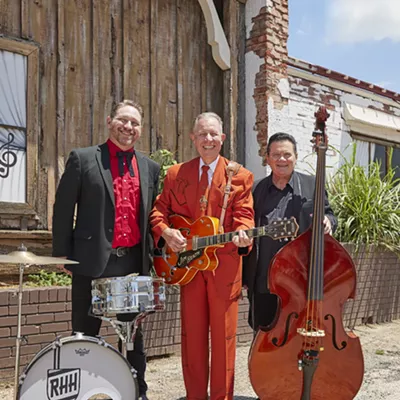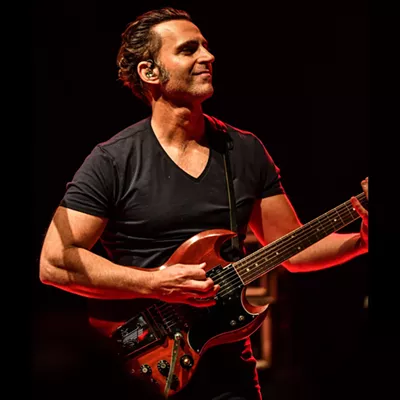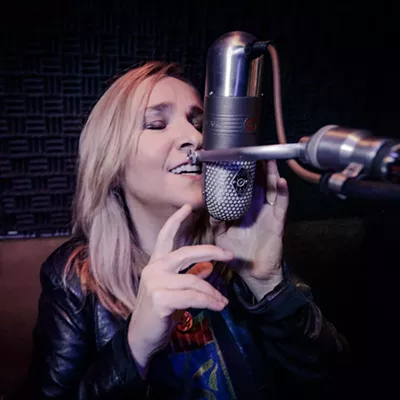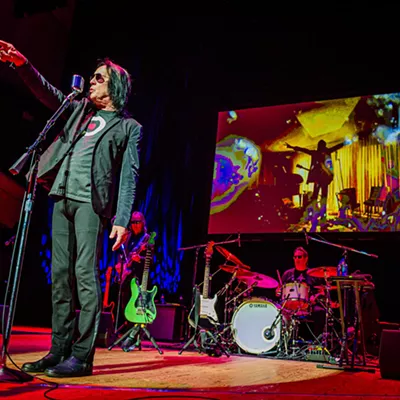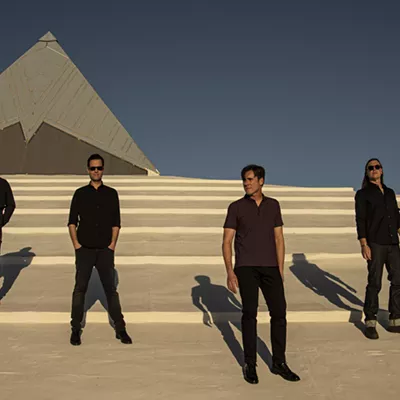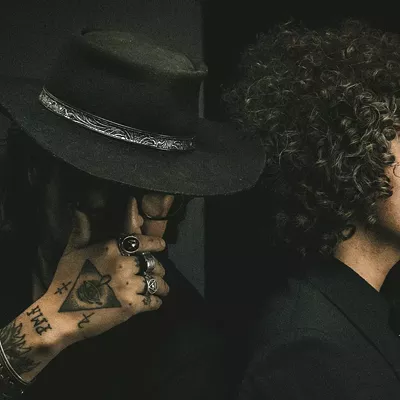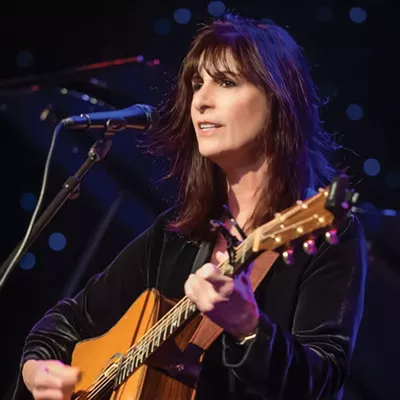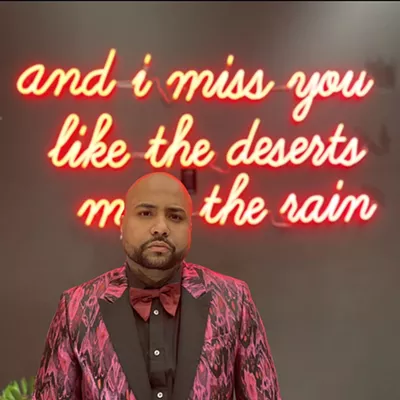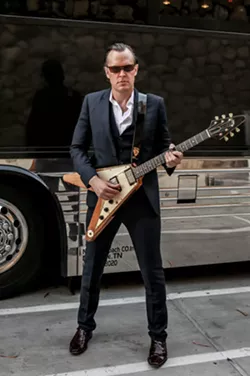
The proverb “A rolling stone gathers no moss” may have provided blues icon Muddy Waters with a song title that further yielded the name for a certain Rock & Roll Hall of Fame group and a storied music publication, but it can also be applied to Joe Bonamassa.
A former guitar prodigy whose first gig was opening for B.B. King at the ripe age of 12, the upstate New York native has been around long enough to play in a number of side projects (jazz-funk outfit Rock Candy Funk Party and hard rock supergroup Black Country Communion), start the non-profit Keeping the Blues Alive and bang out a double-digit number of solo albums.
Bonamassa’s latest studio effort is the 10-cut “Blues Deluxe Vol. 2,” featuring two originals and covers ranging from Bobby “Blue” Bland and Albert King to Fleetwood Mac and Guitar Slim. Given that two decades have elapsed since his first “Blues Deluxe” volume came out, Bonamassa admits the differences between the two are pretty distinct.
“This approach was a lot more fun,” he explained in a recent interview. “We had a budget, so we could use real horns and strings. Plus, I’m happy to say that I’m a better singer than I was 20 years ago. I could tackle songs that were more difficult and insurmountable than when I did the first volume.”
Short, sweet and to the point, “Blues Deluxe Vol. 2” has plenty to sup on, whether it’s the aching treatment given to a horn-soaked reading of Bland’s “Twenty-Four Hour Blues” or the sizzling strut Bonamassa turns the Mac’s “Lazy Poker Blues” into. The pair of non-covers slide in well, showcasing the guitarist’s range, particularly on the percolating “Hope You Realize It (Goodbye Again).” It’s a Bonamassa jam he co-wrote with Buddy Guy/Susan Tedeschi producer Tom Hambridge that sounds like a Tower of Power deep cut.
Fans can expect to hear songs from across Bonamassa’s career when they see the 47-year-old axe-wielder plug in and let it rip live, be it as a headliner or co-headlining alongside another act.
“We have a really big book right now, because we were rehearsing for the orchestra (for a show at the Hollywood Bowl that was recently released as ‘Live at the Hollywood Bowl with Orchestra’) and when we were co-headlining, we had to truncate it down to 75 minutes,” he said.
“It was still a high-impact show. But when I headline, I play as long as I want. We’ve been doing this long enough that we know what it’s about as far as being mindful of the audience, or when we’re out on the road with other acts, being mindful of the other artists. It’s going to be good.”
Growing up in Utica, New York, four-year-old Bonamassa was getting an early soup-to-nuts music education courtesy of his father’s record collection, where he was exposed to everyone from Eric Clapton, Jethro Tull and Free to Muddy Waters and B.B. King. (“Those are my influences. Those are my people that shaped my musical world,” Bonamassa said.)
That was the same year a guitar was placed in his tiny hands, a decision that eventually led to his being mentored and trained by late guitar legend Danny Gatton.
As someone whose drive and talent gave him opportunities, Bonamassa doesn’t take his platform for granted.
One endeavor is Keeping The Blues Alive Records, which he co-founded with longtime manager Roy Weisman. Currently working with up-and-comers like Joanne Shaw Taylor and Robert Jon and the Wreck, as well as veteran artists Dion and Joanna Connor.
Bonamassa and Weisman also helm Journeyman, a full-service artist management, label imprint, concert promotion, and marketing company. Between the record label and the management services, Bonamassa hopes to “…take what I’ve had to learn the hard way to create a company that could make navigating this (music-making) process a little easier.”
The record label is an offshoot of his Keeping the Blues Alive Foundation (KBAF), a non-profit that promotes music education and blues music by funding scholarships and providing music education resources to schools in need. (“Kids who excel in the arts do better in math and the sciences — that’s a proven fact,” he said. “It just opens up your horizons.”) To date, KBAF has provided schools and teachers with over $1 million and positively impacted 74,000 students in all 50 states.
Also under the KBAF umbrella is the Fueling Musicians Program, which supported touring musicians unable to make a living due to the global pandemic. Hundreds of thousands of dollars were raised and distributed to 300-plus artists. For Bonamassa, lending a helping hand to his fellow artists and aspiring musicians was a no-brainer.
“You’ve got to find a way to give back,” he said. “I’ve been very fortunate in my life and career, so I try to find a way to give back and do what I can.”
Joe Bonamassa
WHEN: 8 p.m. Friday, Nov. 1
WHERE: Linda Ronstadt Music Hall, 260 S. Church Avenue, Tucson
COST: Tickets start at $69
INFO: ticketmaster.com

